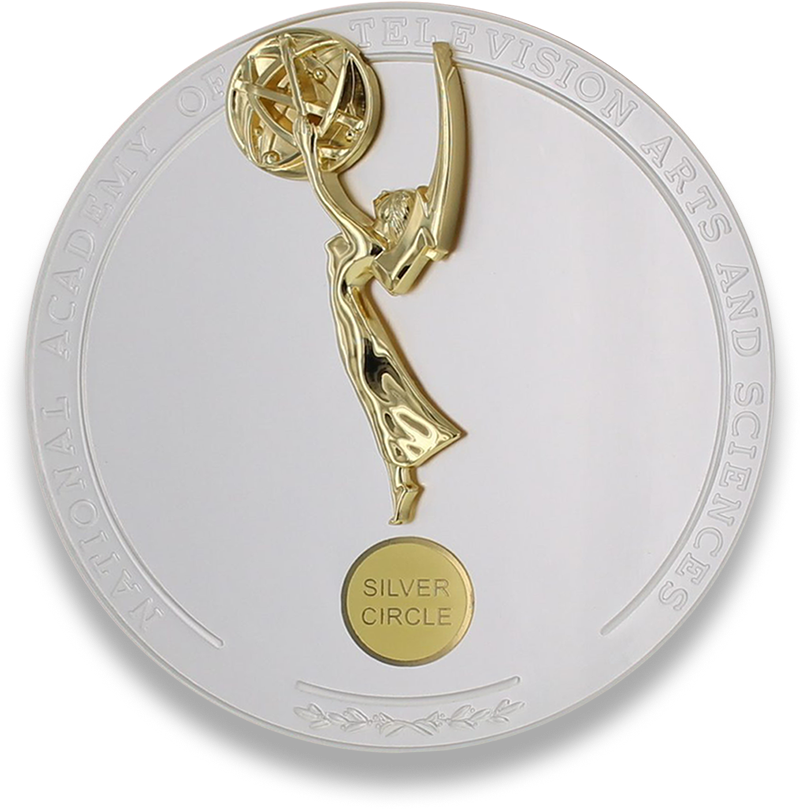
CHICAGO / MIDWEST
Honorees
2000
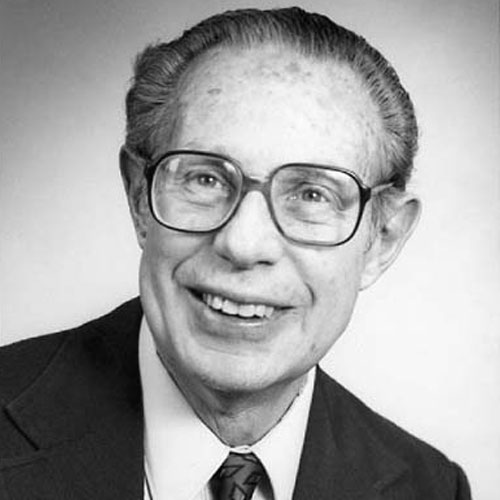
Dr. Robert Adler
Robert Adler (December 4, 1913 – February 15, 2007) was an Austrian-American inventor who held numerous patents. He worked for Zenith Electronics, retiring as the company's Vice President and Director of Research. His work included developing early sound-based remote controls for televisions, which were the standard for 25 years until replaced by infrared (IR) remotes that could transmit more complex commands. Through the years, Dr. Adler's work has been awarded 180 patents and, in 1997, a national Emmy Award for pioneering developments in remote control technologies. He spent his time travelling and skiing, and noting the changes and improvements infrared technologies have brought to his original work. Dr. Adler passed away February 15, 2007.
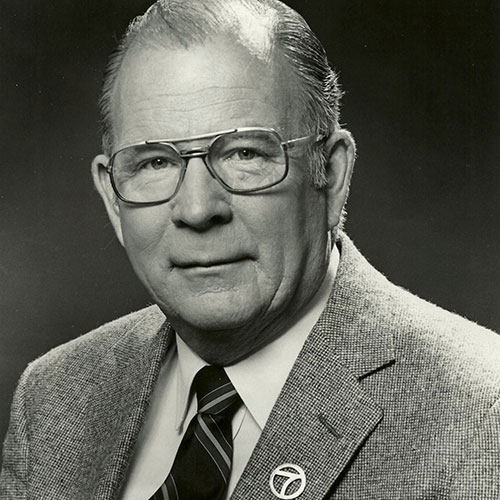
Hugh Hill
During more than 40 years as a political reporter on Chicago television, Hugh D. Hill covered a host of big stories, gaining praise for his interviewing and news writing skills and attention with his booming voice. "He was such a treat to watch. There was no one else like him," said WLS-Ch. 7 feature reporter Frank Mathie. "I learned from him that you can never be afraid to ask the tough question. And he was a great interviewer. He could get great (sound) bites from almost anyone."
Born and raised in Gillespie, Ill., in Macoupin County, near St. Louis, Mr. Hill served in the Army Air Forces during World War II and then earned a bachelor's degree from the University of Missouri. After college, he worked for several small radio stations before signing on at WBBM-AM in 1953 as a newswriter. Before long, he began reporting for WBBM-Ch. 2.
In 1963, Mr. Hill made the jump to WBKB-TV, which today is WLS-Ch. 7. He began a 33-year career at WLS, covering local, state and national politics.
Early on, Mr. Hill established a reputation as a versatile reporter.
"Hugh was remarkable for a street reporter in that he could totally command a scene," said retired Channel 7 news anchor Joel Daly. "It was so impressive. When I arrived at the station (in 1967), he was the only real street reporter Channel 7 had, and he was a street reporter all the way. He was kind of the model and prototype for everyone to learn from."
Longtime Channel 7 reporter Paul Meincke recalled the enthusiasm Mr. Hill brought to every story.
"I think Hugh was born with an inability to whisper," Meincke said. "No one in the newsroom ever had any doubt about the stories he was working, because his conversations flowed through every cubicle. He was loaded with a lot of bluster, but I think it was in keeping with his exuberance for his job and his life."
Mathie remembered Mr. Hill's underappreciated writing abilities, noting that Mr. Hill "could go out on an average political story and turn it into something special with his writing."
Longtime Channel 7 feature and entertainment reporter Janet Davies recalled how she and her colleagues in the newsroom would use both of his names to refer to him.
"Hugh had one name in the newsroom — HughHill," she said. "Very seldom did we call him just Hugh. He was that much larger than life."
Mathie said Mr. Hill had "incredible contacts" by virtue of his many years on the political beat. Although Mr. Hill could be friends with a politician, that didn't mean he would go easy on him or her, Mathie said.
"I guess you could say they loved him and they feared him, because he was very tough," Mathie said.
Ald. Edward Burke, 14th, recalled spending many Democratic National Conventions with Mr. Hill.
"He had the ability to hang his reporter's hat at the door to the entrance of the party and he had the confidence of the political types that he covered that he was a person who would respect the line that divided their public life from their private life," Burke said.
Mr. Hill retired as Channel 7's political editor in 1996 at age 72.
"His love of politics may explain why he kept working well beyond the age when most choose to retire," Meincke said. "Not many in my racket last that long anymore or choose to."
Daly called Mr. Hill "a hale fellow well met" who was right out of everyone's stereotype of a newsman. "He was just an old-time news guy and a commanding fellow," Daly said. "And he was a gentle man in every respect." Mr. Hill passed away on Oct. 18, 2013.
From: https://www.chicagotribune.com/news/ct-xpm-2013-10-27-ct-met-hugh-hill-obit-20131028-story.html
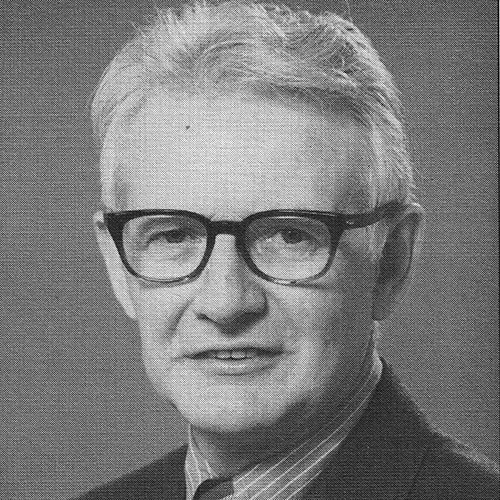
Robert Lemon
Bob Lemon had three goals in his television career: to get the biggest audience, to make the most money, and to give that audience the highest quality of programming he could provide. And he never saw those goals as contradictory.
Mr. Lemon dropped out of his Bloomington, Indiana, high school and hit the ground running. He spent 4 years during World WarII in the South Pacific with the Army Air Corps. When he came home to Bloomington, he would work selling advertising for the newspaper, then for a radio station. In 1949, a new medium launched, and Lemon went to work at WTTS, Bloomington's television station. He climbed the staff ladder to station manager and his success in that job to a move to Philadelphia, where he was program director for the NBC station. He moved to Chicago in 1959 as Station Manager of Channel 5-WNBQ-TV (call letters were changed to WMAQ-TV in 1964.) In 1965, Lemon was named General Manager at WMAQ-TV , after serving as Station Manager. He believed the Chicago television audience was both his mission and his responsibility. The 10 o'clock news program regularly had a 50% share of the audience: the 5 o'clock was expanded to be Chicago's first hour-long news broadcast. In 1972, he became President of NBC Radio, until his retirement from NBC in 1978. Mr. Lemon died in 1983 at the age of 65.
Bio from Induction Year Program Book
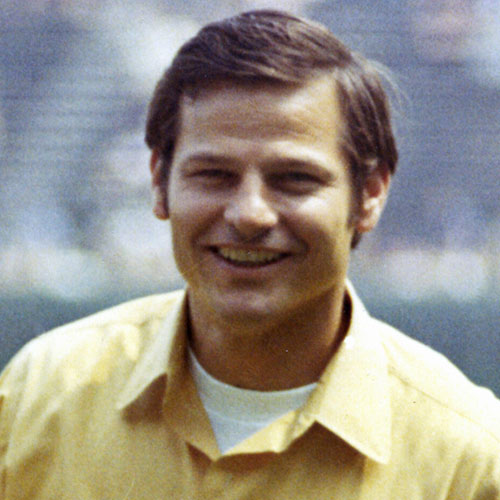
Johnny Morris
Johnny Edward Morris (born September 26, 1935) is a former American football running back/wide receiver in the National Football League. He spent his entire ten-year career with the Chicago Bears, and is the franchise's all-time leader in receiving yards with 5,059. He attended the University of California, Santa Barbara. Morris won an NFL championship in 1963. In 1964, he had his best season with 93 receptions for 1,200 yards and 10 touchdowns.
In 1964, while still playing for the Bears, Morris joined WBBM-TV in Chicago as a sportscaster. Except for a six-year stint at rival WMAQ-TV, Morris remained at WBBM until 1992, serving for most of that time as sports director. During his time at WBBM-TV, he popularised the use of the telestrator (a device for drawing over still or moving video images) in sports television, which was invented by fellow WBBM-TV employee Leonard Reiffel for his science-related TV series Dimensions on Tomorrow's Living and The World Tomorrow. He also served as a football color commentator for CBS' NFL coverage from 1975 to 1986. He retired in 1996.
His father was from Achladokampos, Greece (family name Μονοπορης, or Monoporis), while his mother was Swedish. While playing for the Bears, Morris was known as "Little Greek" and teammate Bill George was "Big Greek".
Morris was married to sports reporter Jeannie Morris, whom he met at UC Santa Barbara, from 1960 to 1985. The two remained close after their divorce as television colleagues.
From Wikipedia:
https://en.wikipedia.org/wiki/Johnny_Morris_(American_football).
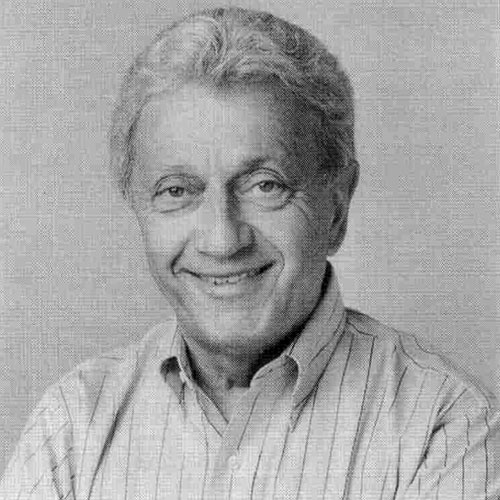
Al Parker
The late founder of the Columbia College Chicago Radio Department, Al Parker served as Chairman from 1946 to 1999. He was a guiding force in establishing WCRX , the college radio station, and taught several generations of students who have become successful members of the national broadcast community. Throughout the 70’s and 80’s, Al Parker was also the voice of Chicago’s ABC - Channel 7 and worked as a voice-over talent for numerous clients. In 1995 Al Parker was presented with the school’s highest honor, the prestigious President’s Medal. Al was dedicated to Columbia College and its students.
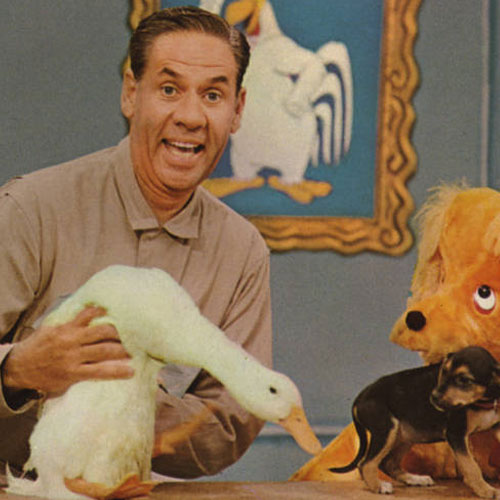
Ray Rayner
Ray Rayner (born Raymond M. Rahner; July 23, 1919 – January 21, 2004) was an American television presenter, actor and author, he was the staple of Chicago children's television in the 1960s and 1970s on WGN-TV.
After briefly working in radio at WOOD in Grand Rapids, Michigan, as well as in New York and Dayton, Ohio following the war. Rayner joined what was then WBKB, later to become WBBM-TV in Chicago as a staff announcer; he also worked on a local morning program called Rayner Shine in 1953.
WBBM asked Rayner to switch to a children's program in 1958, though reluctant at first, he did so with The Little Show, which was very much like Ray Rayner and His Friends; on this version, the duck he worked with had the name of Havelock. It ran two years; he also hosted Popeye's Firehouse (as Chief Abernathy) for another two. He moved to WGN-TV in 1961. Starting in 1962, Rayner began hosting his own long-running Ray Rayner and His Friends, which had the title Breakfast With Bugs Bunny when he became its host; it was renamed in 1964.
Rayner also had a talking dog puppet, Cuddly Dudley, created and voiced by Roy Brown, a.k.a. "Cooky the Cook" from Bozo's Circus and The Bozo Show. The segment highlighted viewer mail which included many hand-drawn pictures submitted by children..
The arts-and-crafts was a regular segment that always began with a finished version prepared in advance by someone "behind the scenes" (who quite often was the wife of Producer Dick Flanders) that was displayed to the audience, followed by Rayner's attempts to demonstrate the process in an amusing, all-thumbs effort, also set to music, that resulted in a comically sub-par facsimile that more resembled a random collection of felt, construction paper and glue. Another bit was a lip-synching sketch Rayner usually did to an older novelty song such as "Hello Muddah, Hello Fadduh" by Allan Sherman. However he also performed serious songs while actually singing. Another feature on the show was Ark in the Park, a taped segment of a trip to the Lincoln Park Zoo featuring the then-director of the zoo, Dr. Lester Fisher. Rayner also featured a "How and Why" segment on his shows with J. Bruce Mitchell of Chicago's Museum of Science and Industry, as did Garfield Goose and Friends. Along with Bozo's Circus, a video game was added to Rayner's show that viewers could play by phone called TV Powww. Rayner hosted this show until his 1980 retirement from WGN.
During his years in Chicago, he also frequently appeared in live theater, including plays at the Forum Dinner Theater in suburban Summit; receiving a Jefferson award nomination for one of his roles. Rayner also did directing for student productions at Loyola University Chicago. He received an M. A. in Humanities from the University of Chicago in 1970, writing his thesis about children's television's first goal being to entertain. He was a member of the Silver Circle of the Chicago chapter of the National Academy of Television Arts and Sciences and received many local Emmy® Awards for his television work. Rayner also wrote a book titled The Story of Television published in 1972.
From https://en.wikipedia.org/wiki/Ray_Rayner
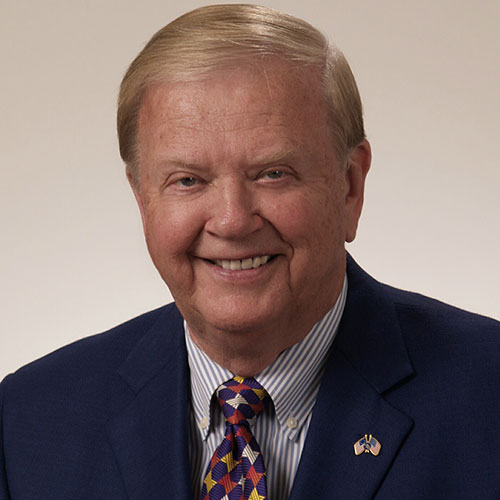
Orion Samuelson
Orion Samuelson recently retired from being heard six days a week on WGN Radio in Chicago, where he
served as Agribusiness Director since 1960. Orion presented 18 agricultural
reports daily on the station and was also heard daily on radio stations with his
syndicated National Farm Report and syndicated Samuelson Sez commentary
programs. In addition, Orion and Max Armstrong hosted the one-hour Saturday
Morning Show on WGN Radio and were seen weekly on RFD-TV as co-hosts of
This Week in Agri-Business.
Orion’s life long commitment to agriculture has been recognized by organizations
in all segments of agri-business. In 1998, the American Farm Bureau Federation
honored Orion with the AFBF Distinguished Service Award. In 1997, Illinois
Governor Jim Edgar renamed the State Fair Junior Livestock Building the Orion
Samuelson Junior Livestock Building as a tribute to Orion’s four decades of
service to the agricultural youth of Illinois.
In 2001 the University of Illinois conferred Orion with the Honorary Degree of
Doctor of Letters. In 2003, Orion received the highest award in the radio industry
when he became the first Agribusiness Broadcaster to be inducted into the
National Radio Broadcasters Hall of Fame. Hall of Famer Paul Harvey presented
the award to Orion on the national radio broadcast hosted by Larry King.
Orion is also in the Illinois Broadcasters Hall of Fame, the Illinois 4-H Hall of
Fame, the National 4-H Hall of Fame,, the Scandinavian-American Hall of Fame
and the National Association of Farm Broadcasters Hall of Fame.
Orion has traveled with his television crew to 43 countries to cover agriculture;
four of his trips were official agricultural trade missions with the Secretary of
Agriculture.
Orion is active outside broadcasting. He is Past-Chairman of the Board of the
Illinois Agricultural Leadership Foundation, a member of the Farm Foundation
Bennett Round Table, a member of the Board of the Agriculture Future of
America, a member of the Board of Farm Safety 4 Just Kids, a member of the
Board of Directors of the Foods Resource Bank, a Trustee of the Cornerstone
Foundation of Lutheran Social Services in Illinois and is a member of the Board
of Trustees of the National 4-H Council.
Orion added author to his resume November 1st, 2012 with the successful
launch of his autobiography, “You Can’t Dream Big Enough”, which is an
inspiration to young people everywhere.
From http://watermanlionstractorshowandsummerfest.com/orion_bio.pdf
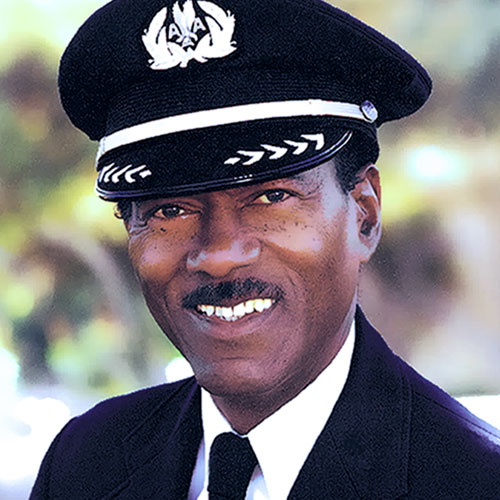
Jim Tilmon
Jim Tilmon, aviation expert, local Emmy® Award-winning newscaster, and accomplished musician, was born on July 31, 1934, in Guthrie, Oklahoma. Tilmon earned his B.A. degree in music from Lincoln University in Missouri, and served in the United States Army Corps of Engineers for eight years, earning the rank of captain.
Tilmon’s interest in flying carried him from the U.S. Army to American Airlines in 1965, where he became the airline’s third African American commercial pilot and the country’s fifth. Tilmon spent twenty-nine years with American Airlines before retiring; his talent earned him the Captain’s Chair Award from American Airlines; inspired United Airlines to grant him the title of honorary captain; and compelled the FAA to name an aviator’s navigation point after him.
While still piloting aircrafts, Tilmon set another precedent by hosting the first live weekly magazine show developed for and by African Americans. 'Our People,' premiered one week after the assassination of Dr. Martin Luther King, Jr. Tilmon’s guests included notable politicians, artists, and activists, such as Harold Washington, author James Baldwin, and jazz vocalist Johnny Hartman. After four years at WTTW, Tilmon became a weather forecaster and aviation and science reporter at Chicago’s NBC affiliate. Tilmon appeared on numerous national programs, including: 'Hardball,' 'NBC Nightly News,' and 'Nightline.'
In addition to his aviation activities, Tilmon stayed involved with music by performing and creating original music for television motion pictures, and other audio and video productions. Tilmon also recorded a symphony- and orchestra-infused relaxation CD, 'Angel Whispers,' in 2003.
Tilmon was awarded a Chicago Emmy in 1974 and was nominated for a National Emmy and the Illinois Associated Press and Illinois United Press International awards for excellence in reporting and broadcasting.
In 1994, Tilmon retired from the airlines and NBC and moved to Arizona, where he continued to do on-air aviation reporting. In 2002, Tilmon returned to Chicago as a weather forecaster and aviation reporter and analyst for the CBS affiliate. In 2004, Tilmon was inducted into the Chicago Senior Citizens Hall of Fame, and was awarded the Luminary Senior Award for his impact on social and cultural life in the City of Chicago.
Tilmon passed away on January 16, 2021.
From https://www.thehistorymakers.org/biography/jim-tilmon-39